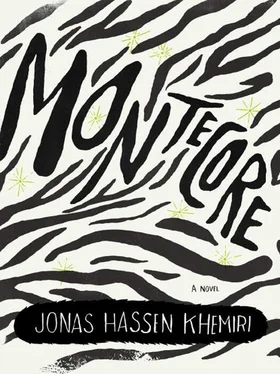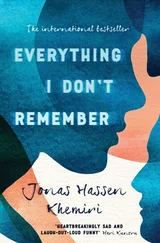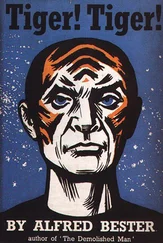Weeks became months and your father still shared my hospitable lodgings in Tabarka. In the evenings he wandered the streets of Tabarka solitarily. He came home at dawn with cloudy eyes. He was not left in peace by the demons of the night here in his former homeland either. Sometimes I thought the thought: “It is as though he has passed from having had three conceivable homelands to having zero.”
Your father presented a melancholy that was deeper than I had ever witnessed. I got the emotion that he would prefer to permanent himself in Tunisia (in the physical, not hairstylish, sense). At the same time there was the longing for his family, which tempted him to home journey. One night we took a longer walk, accompanied by hooting tourists at beach bars and a carefully lapping water edge.
“Forgive my long silences, Kadir. But I must be honest. The latest episode in my Swedish life has not really been as euphoric as I have summarized you.”
“Do you want to portion your problems?”
“They are too many to relate. But I can try. To support one’s family as an artistic photographer was more difficult than projected. I was forced to photograph pets to survive. First my wife deprecated our constantly deficient economy, then she instead deprecated my constantly expanded working hours. None of my wife’s relatives laugh at my knuckle-cracking trick anymore. Cherifa expects increased economic support every summer. The temptation of alcohol has been too much for me lately. In addition, Sweden has been much modified since Refaat and Palme have been abducted. Some ten Swedes with non-Swedish looks have been shot down during the fall and spring. The racist attacks have increased with steady frequency. The country that has always been an erected welcoming hand seems me now to be formed into an erected middle finger. Or a threatening fist.”
Here we stood silent for a few seconds. Your father continued:
“But still my son rouses the greatest unease.”
“Which of them? The oldest? Surely he has never offered you problems other than well-growing long legs, broad corpulence, and a great appetite for sweets?”
“He has been transformed as well. He persists in spending his time with the children of other immigrants. His body plays basketball and refuses my offers of tennis. His ears listen to the hip-hop of nigger music and he dirties his Swedish language with the embarrassments of slang.”
“Why?”
“I don’t know. At the same time he accuses me of presenting a ‘Swediot name’ as a photographer alias.”
“Perhaps he is just experiencing the revolt of the teenager?”
“No. His soul is as transformed. He reads the autobiography of Malcolm X and do you know what present he inquired for his anniversary? The map of Tunisia in gold to have around his neck. He does not want to study economics and he calls me a betrayer of ‘Arab ideals.’ Once he quoted the Koran to my face. Can you understand this?”
“The Koran? Your son? But … he is as Swedish as a potato! His Arabic is more innovatively comical than academically accomplished. How has this happened?”
“Do not ask me. I have no knowledge. But it is NOT my fault. I have constantly proclaimed the importance of Swedish integration and the risk of relations with other immigrants. Particularly niggers. I have been sufficiently careful of relating too much about his origins. I have constantly spoken threateningly about the path of politics. Still it is in this mud that he wants to dirty himself. He stays out late at night, he suddenly calls Sweden a racist country and plans a future move to Tunisia … He is crazy. Crazy, I say.”
“It pains me to hear.”
“It pains me to see.”
Our pause was set to sound by the melodies of screaming twilight birds. Then Abbas said:
“One thing is securized, anyway.”
“And what is that? That you will return my loan very soon?” I joked.
Your father observed me with an expression of second-long madness that I probably hadn’t seen since his time at the orphanage.
“That I will never make the same mistake as my father. I will not let politics come between me and my son.”
Here we leave the two friends where we stand straining sand through our toes while the loudspeakers at the beach bars jangle out Inner Circle’s “A La La La La Long” song and the red sun lies down to sleep in the Mediterranean.
Back in Stockholmthere’s also the world’s best grandma with cigarettes in holders and soft sun-wrinkle eyes, who, in a rage that someone dared to sully her husband’s and son-in-law’s place of business, starts to go on spying trips in the vicinity of the burned-down studio. When she isn’t cruising around in the Toyota in pursuit of suspected perpetrators, she helps with the cleanup. It’s you, Imran, Melinda, and Grandma who together get to work scrubbing away the soot flecks and clearing out the debris. Everything is thrown out at the dump except things that might be repairable, and you put the remnants of the negative binders into the storeroom. Hundreds of photo series in purple opposite colors, silhouettes of dogs and hamsters, parrots and snakes.
From Grandma’s garage you fetch leftover paint, and together you repaint the inside of the studio and you remember how surprised you are at Grandma’s energy. Grandma turns out to be a seventy-six-year-old revolutionary with just-wakened fighting spirit, paint-flecked Birkenstocks, and double white pearl necklaces. A warrior who refuses to bend, who now seems to regret her words about Dads’s laziness. Your father is a good man, I’ve always said so. And it sure can’t be easy to come from a third-world country and then come here and try to understand our customs. But he tried, anyway, he should get credit for that. The rest of the time she tells of memories from her life with Grandpa, how they met at that wedding in the archipelago when she was new to Sweden, how handsome Grandpa had been, how he accidentally almost head-butted her when he bowed nervously, how he complimented her brooch. And you listen, and after a while you stop pretending to be interested and you become interested for real because there’s so much about Grandpa’s life that’s reminiscent of yours and you think: Everything goes in circles and of course Dads are good dads, after all, and of course Dads have done their best, after all. You force yourself to understand Dads’ actions, you defend Dads in perpetual inner battles, you say that Dads actually had it really tough and I can understand and I promise he’ll come back soon and I blah blah blah and understanding here and understanding there and you’ve been understanding for your entire damn life, understanding for idiot blattar who routine-complain about Sweden and understanding for Swediots who complain about blattar’s welfare craving and understanding for Arabs who hate Iranians because they always want to be better than other blattar (except when it’s a matter of allocating themselves into the blatte quota) and understanding for Iranians who hate Arabs because of all the historical rubbish and understanding for Serbs who hate Bosnians and Bosnians who hate Turks and Turks who hate Kurds and Kurds who hate everyone and everyone who hates Gypsies and the only ones you’ve had a little trouble understanding are black Africans, because they are pretty far down in the blatte hierarchy but unlike the Gypsies, they never seem to hate back and you can’t understand how they can’t be tempted into using hate as a driving force. Because in the end isn’t it the hate that pushes us on, you think when the studio is done being renovated in a new light blue color and Dads are still missing.
Six months pass.
Then you say good-bye to the understanding and hi to the hate and start to be ashamed when someone asks about your dad.
Читать дальше










